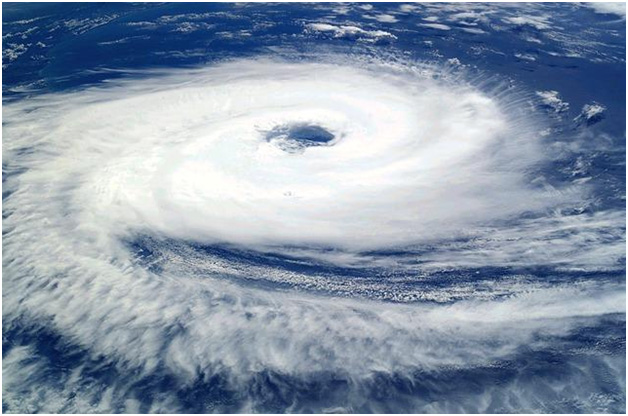
Image via Pixabay by WikiImages
A hurricane is a scary ordeal. There’s no two ways about it. If you live in an area where there’s a chance of experiencing one, however, there are things you need to know to ensure the safety of yourself and your family and to protect your home and possessions.
Know How To Survive
Hurricanes are incredibly dangerous, but there are things you can do to greatly increase your chances of survival. These include:
- Keep plenty of water on hand for drinking and cleaning in case you’re left without running water when the storm is over.
- Keep plenty of gas in your vehicle so you can get away if evacuation is necessary.
- Keep cash on hand in case of power outages.
- Keep up with the storm through the web, TV and/or radio as much as possible.
- Close your doors and stay away from windows. Keep shades and curtains closed.
- Stay on the lowest level of your home and get under a table if possible.
- Secure items outside of your home as best as possible to avoid having them become dangerous when picked up by the wind.
- Follow evacuation instructions from authorities.
Use A Storage Facility
If you live in an area where there is a chance of being impacted by a hurricane, it’s a good idea to rent a storage unit somewhere out of the danger zone for storing your most important items that you don’t need in your home at all times.
“The golden rule of disaster preparation is to pretend a storm is coming tomorrow,” says ClosetBox. “Don’t wait to start preparing. Again, the first step is often to designate and prepare a space to hold your survival supplies. Consider, too, the beach-style bungalow is on the short list of many people’s dream homes. Yet, these floor designs rarely allow for excess storage. For this reason alone, convenient and cost-effective storage solutions are often crucial for those who live near the beach.”
Prepare Your Pool
If you have a swimming pool in your backyard, there are several things you should consider before a hurricane comes. In the Swim touches on these, calling draining the pool a “major no-no” because a strong enough storm could actually cause an empty pool to pop out of the ground. The water helps to hold in in place. It also recommends adding extra chlorine to combat potential pollutants that could contaminate the water during the storm and leaving the pool cover off because it could fly up/away and cause its own damage.
“Turn off the electric breaker system to your pool to avoid electrical surge damage,” it says. “This includes all the mechanical systems in your pool as well as any lighting. Filter damage is the most common pool damage that occurs during hurricanes, so it’s important to protect it. If the filter is going to be at risk for complete water submersion, remove the pump and secure it in a safe, dry location inside. Some also opt to merely cover the pump with watertight plastic and rope to prevent water damage.”
It’s hard to avoid experiencing some amount of damage when a hurricane rolls through, but if you prepare, you can minimize that damage and keep yourself and your family safe as Mother Nature otherwise wreaks havoc.
Bradley Davis is a retired firefighter and SoCal resident. He has seen is fair share of natural disasters and knows all too well the damage they can cause when people in their paths aren’t prepared. He created DisasterWeb.net to share his emergency preparedness knowledge and to offer the many emergency planning and natural disaster-related resources he has compiled from his online research. When he isn’t adding new information to his site, Bradley enjoys relaxing on the beach with his wife.

freeze as much water ahead of time, if time. Helps keep freezer colder longer and can be use in coolers for a while